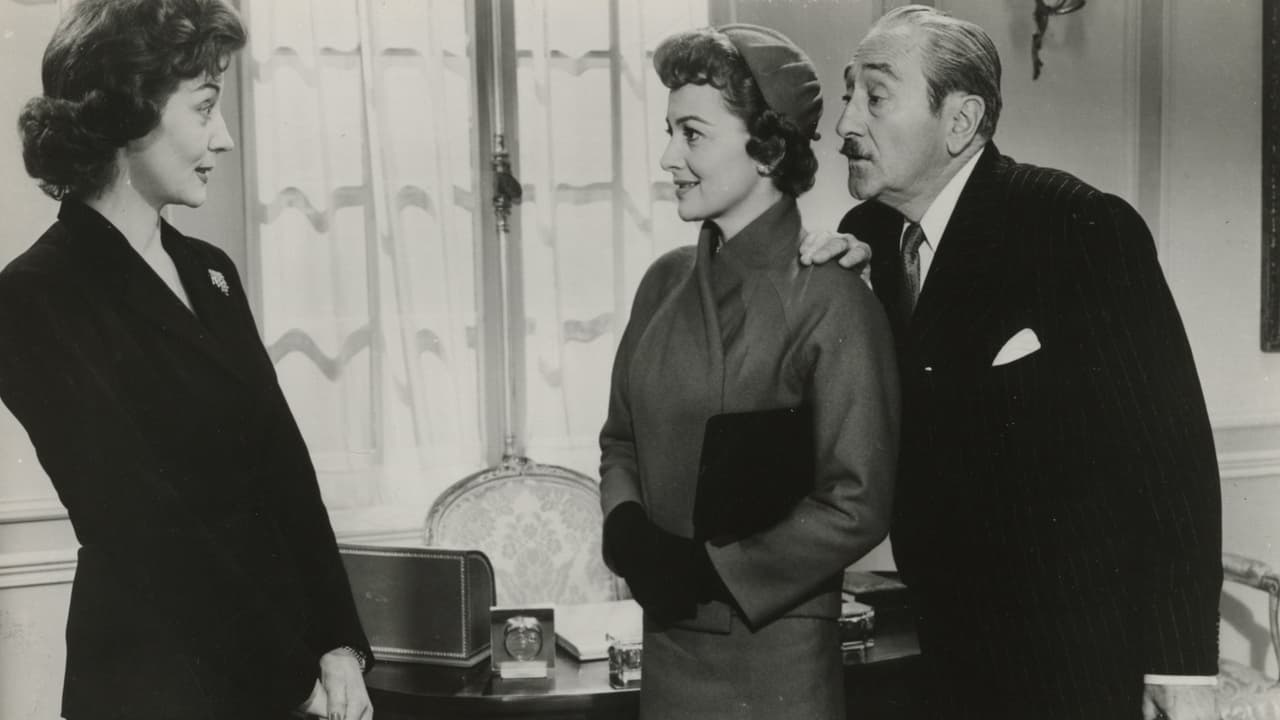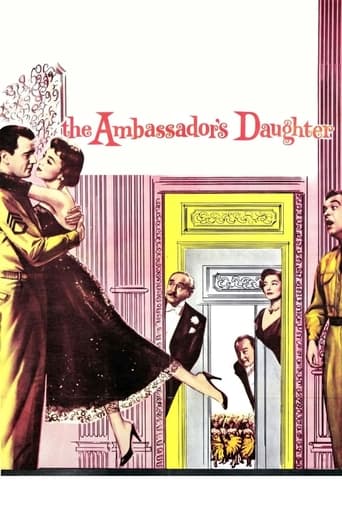

Frothy bit of fluff but with a great deal of charm. The entire cast are expert comedians excepting Forsythe but his role is really that of the straight man anyway. This was Myrna Loy's first supporting role after years in the star spot but while she is clearly secondary her skillful presence keeps her in mind even when she is off-screen. Tommy Noonan is most amusing as Forsythe's befuddled pal, his gauche hayseed with a good heart makes a nice counterpoint to the sophistication of the other players. Shot entirely in Paris with clothes by Dior this is a chic soufflé of the type that Hollywood has no idea how to make anymore.
... View MoreTwo elements noticeably kept "The Ambassador's Daughter" from becoming a classic: Norman Krasna's uninspired direction and Olivia de Havilland's age. I've always enjoyed Krasna's writing, finding it charming, witty, and slightly subversive. The script for this movie carries all of the "Krasna touch", but none of this is apparent from the lifeless direction. As a result, jokes were held too long, the actors stood around looking uncomfortable in long-shots, and it wavered between sharp social satire and frothy romantic comedy, touching neither elements successfully. As a result, Olivia de Havilland appears a bit out of place as a 40 year old woman, for the plot and direction kept trying to palm her off as someone 15 years younger. Granted, de Havilland was beautiful and elegant, but she brought too much maturity and groundedness to the type of character who launch such a harebrained scheme and lead John Forsyth on a merry chase across Paris. I would have believed her portrayal of Joan had she been written as a widow or longtime spinster devoted to her father, rather than a sparkling, youngish role in which Audrey Hepburn, Grace Kelly, or Jean Simmons could have filled without a hitch. The rest of the cast gives a game performance, though as stated above, the direction really did them a disservice. Really wasted was Myrna Loy, who was only 10-12 years older than Olivia de Havilland, and was much too luminous and witty to be stuck in such a small part! However, the main issue I had with this film was its inability to make up its mind. By the second half of the film, de Havilland and Forsyth are obviously very smitten, but a series of contrivances keep them apart. I also found the outrageous matchmaking mind-boggling, considering that de Havilland's character clearly had a fiancé (underused Francis Lederer) who we know nothing about to make us believe he is wrong for de Havilland. Ultimately, the direction, flat jokes, and under-written script leaves this a classic-that-could-have-been, and is a dull point in Krasna's long and celebrated career.
... View MoreThe 1 star rating is for the DVD which may be the worst I've ever seen, and my first DVD was the original "Blade Runner" release. The print is sadly faded and filthy--scratched, blotched, lined. It jumps, it skips, it ripples, it does everything but the hokey-pokey. Even worse, this early Cinemascope release (2.55) is given a full screen presentation so every blemish is emphasized. Even panned and scanned would've been an improvement. Instead all we're given is the center of the ultra-widescreen image at all times. The result being that in most scenes part or all of the speakers are off screen and sometimes the featured action as well, while most of the image is left empty. Beware Education 2000, who released this abomination--they have no regard whatsoever for their product. If you want it, and it does have its charms however slight, get it off TCM. Their print is lbx'd and in good condition.
... View MoreWhat were they thinking? This movie's script is terrible (cliche after cliche), and it's doubtful that even appropriate actors could have rescued it. Olivia de Havilland looks about 50 here (Myrna Loy is supposed to be decades older, but they look like contemporaries), rather than the ingenue the role calls for. Compare this to Roman Holiday, made about the same time--a wonderful script, marvelously appropriate actors, and enchanting use of its location. This movie represents the worst of 50's film-making--a huge waste of talent.
... View More